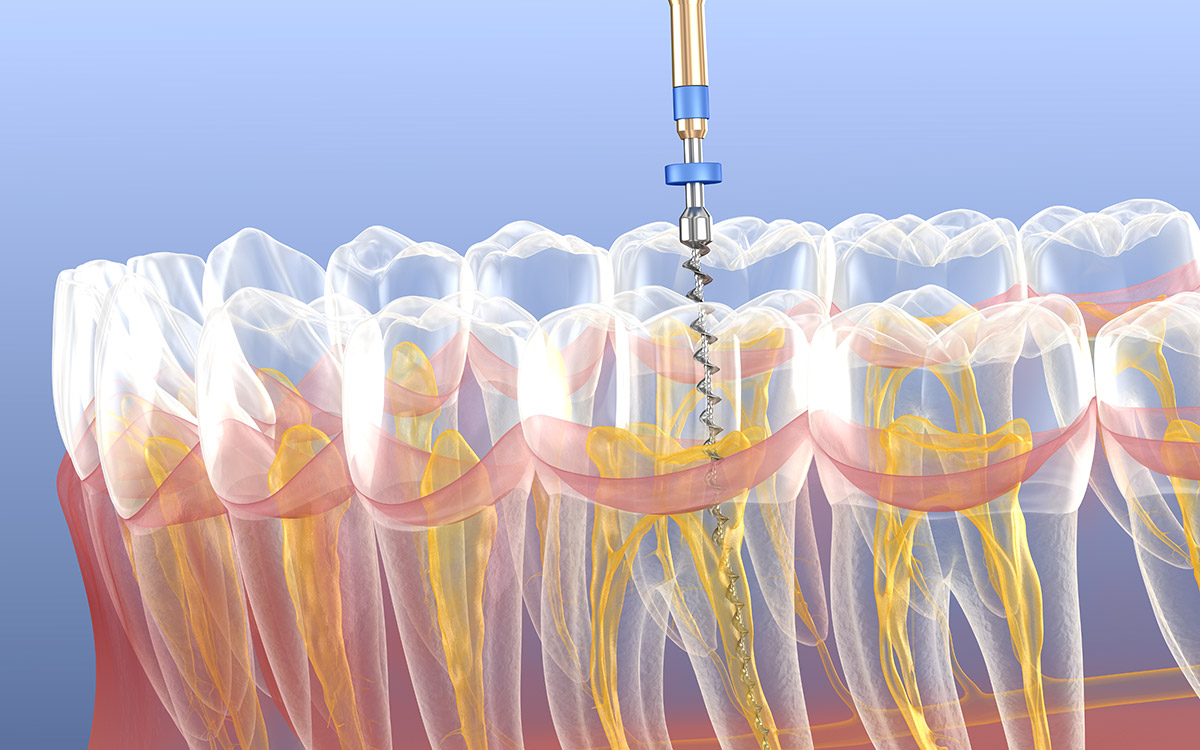The mere mention of a root canal can evoke a sense of dread in many dental patients. However, the reality is that root canal therapy is a common, straightforward procedure that can save your natural teeth and prevent further oral health complications.
This blog will demystify the process of root canals and explain why they are often necessary and beneficial.
1. What is a Root Canal?
- Purpose of Root Canal Therapy: A root canal is a treatment used to repair and save a tooth that is badly decayed or infected. The procedure involves removing the damaged area of the tooth (the pulp), cleaning and disinfecting it, and then filling and sealing it.
- Signs You Might Need a Root Canal: Symptoms include severe tooth pain upon chewing, prolonged sensitivity to hot or cold, discoloration of the tooth, and swelling and tenderness in the nearby gums.
- The Procedure: Typically, a root canal is performed by an endodontist or a dentist. The area around the tooth is numbed, a small protective sheet called a “dental dam” is used to isolate the tooth, and the inside of the tooth is cleaned and sealed.
2. Benefits of Root Canal Therapy
- Pain Relief: Although root canals are reputed to be painful, modern techniques and anesthesia make the procedure no more painful than a filling.
- Tooth Preservation: The procedure allows for the preservation of the tooth, which is beneficial for maintaining proper chewing function and a natural appearance.
- Prevention of More Serious Issues: Treating the tooth can prevent the spread of infection to other areas of the mouth, which might cause more serious health issues.
3. Aftercare and Recovery
- Post-Procedure Care: After a root canal, the tooth may be sensitive for a few days. Over-the-counter pain medications can alleviate discomfort.
- Follow-Up Appointments: A follow-up visit to the dentist is necessary to ensure the tooth is healing properly. Eventually, a crown or other restoration is placed on the tooth to protect it and restore it to full function.
- Long-Term Care: With proper care, a tooth that has had a root canal can last as long as natural teeth. Continuing good oral hygiene practices and regular dental visits is crucial.
Conclusion
Root canal therapy is a vital procedure for preserving teeth that might otherwise need to be removed. By understanding what the process entails and its significant benefits, patients can approach this treatment with confidence, knowing they are making a positive choice for their oral health.
FAQ’s about Root Canals
How long does a root canal procedure take?
The procedure typically takes about 90 minutes, depending on the condition of the tooth and the specifics of the case.
Is a root canal a permanent solution?
Yes, a root canal is a long-term solution. The restored tooth can last a lifetime with proper care.
Can I go to work after getting a root canal?
Yes, many people are able to return to work or other normal activities the next day.
What if I am nervous about pain?
Discuss sedation options with your dentist. There are many strategies available to manage pain and anxiety during dental procedures.
Are there alternatives to a root canal?
The primary alternative to a root canal is tooth extraction, which should be considered as a last resort. Saving your natural tooth is often the best option.







